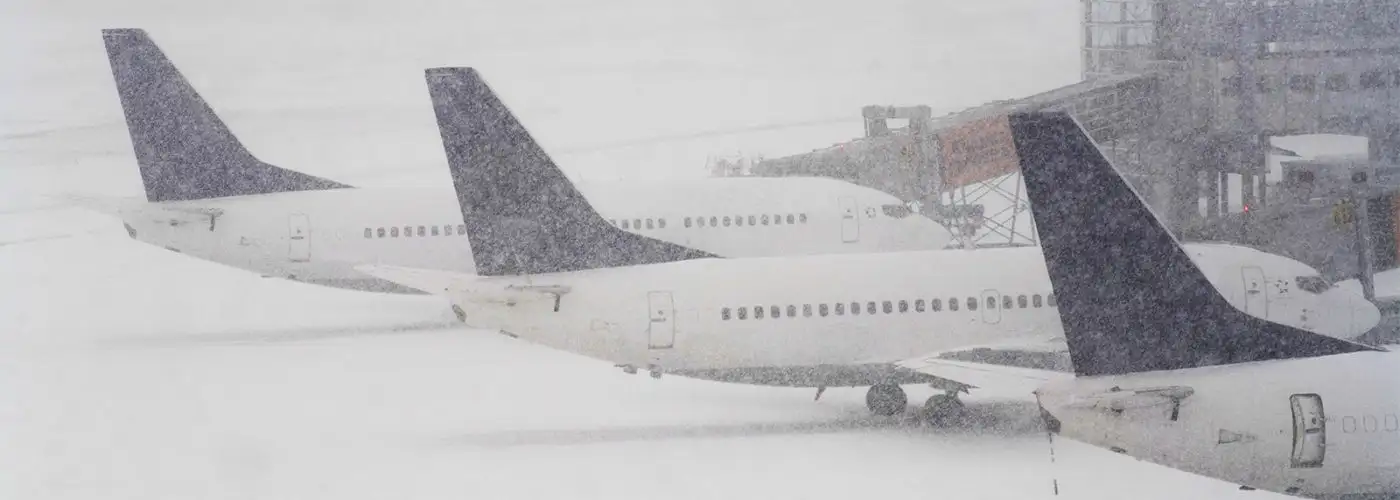Despite all the technical advances that have taken place in the travel industry over recent decades, winter weather can still seriously disrupt itineraries. And not just air-travel itineraries—winter storms can close highways and railways too, sometimes for days. You certainly can’t change the weather, but you can minimize its risks, both while planning and en route. Here are some practical strategies for avoiding nine common winter-travel blunders.
Image Gallery
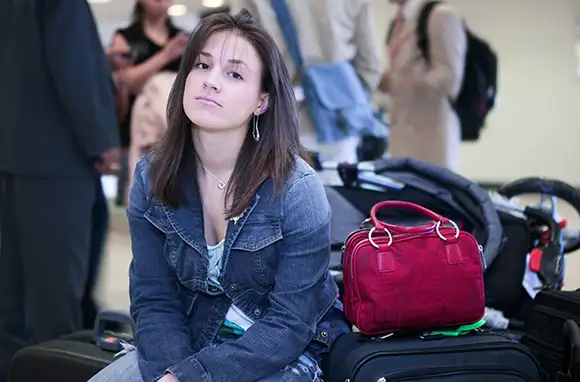
Connecting in Delay-Prone Hubs
In the winter, avoid hubbing entirely when you can. Avoiding connections significantly reduces your risk of encountering a problem. The best way to deal with O'Hare in the winter, for example, is to fly over it at 35,000 feet.
If you can't avoid connections, avoid hubs with bad cancellation records. Not surprisingly, Boston, Chicago/O'Hare, Denver, Philadelphia, San Francisco, and Washington/Dulles fared poorly in on-time arrival performance in February 2013 and February 2014. On the other hand, warm-weather airports Atlanta, Miami, and Phoenix fared well, and, surprisingly, snowy Detroit, Minneapolis-St. Paul, and Salt Lake City, along with rainy Seattle, also did reasonably well.
Solution: If you can handle the (sometimes pricier) ticket cost, book direct flights during winter. And, depending on how close to departure you make reservations, check the weather forecast for any hub you might use.

Connecting in Delay-Prone Hubs
In the winter, avoid hubbing entirely when you can. Avoiding connections significantly reduces your risk of encountering a problem. The best way to deal with O'Hare in the winter, for example, is to fly over it at 35,000 feet.
If you can't avoid connections, avoid hubs with bad cancellation records. Not surprisingly, Boston, Chicago/O'Hare, Denver, Philadelphia, San Francisco, and Washington/Dulles fared poorly in on-time arrival performance in February 2013 and February 2014. On the other hand, warm-weather airports Atlanta, Miami, and Phoenix fared well, and, surprisingly, snowy Detroit, Minneapolis-St. Paul, and Salt Lake City, along with rainy Seattle, also did reasonably well.
Solution: If you can handle the (sometimes pricier) ticket cost, book direct flights during winter. And, depending on how close to departure you make reservations, check the weather forecast for any hub you might use.

Scheduling Tight Connections
If you can't avoid hubbing, allow some extra connecting time. Typically, airlines automatically schedule connections close to the minimum connecting times they've established, which are often as short as 30 minutes and much too close for comfort if delays are imminent.
Solution: If possible, arrange an earlier first flight or later connecting flight to give yourself a hedge against late arrival of your first flight.
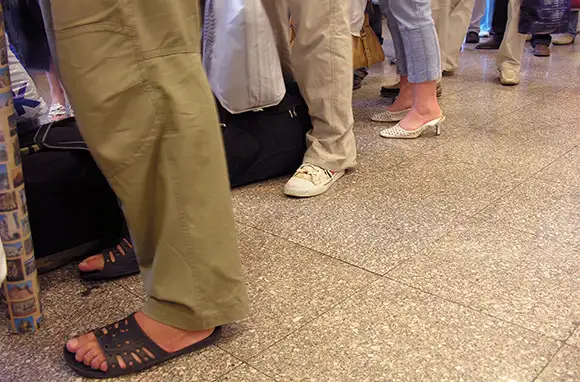
Waiting In Line
When your airline finally confesses that your flight is delayed or canceled, don't stand in one of those interminable lines to make alternate arrangements.
Solution: Get on your phone, laptop, or tablet to work out your own replacement itinerary as quickly as you can. Rather than asking the airline what it can do for you, figure out what you'd prefer, and say, "Please do this for me." If you use a travel agent, call the agency immediately. Even small agencies these days usually provide access to a 24/7 backup service.

Bundling Up for Winter Weather
This may seem like a strange suggestion, but dressing for winter weather is a common mistake air travelers make. Although you may have to be outside in snow or rain at some points, you also have to spend hours inside airports. Airport interiors are almost always overheated to provide pleasant shirtsleeve working environments for the employees who spend entire shifts inside; it's an environment that can become extremely uncomfortable for a traveler dressed for winter.
Solution: Dress in layers, and remember to wear or pack a light base layer for when you're spending time indoors or running through airport terminals.
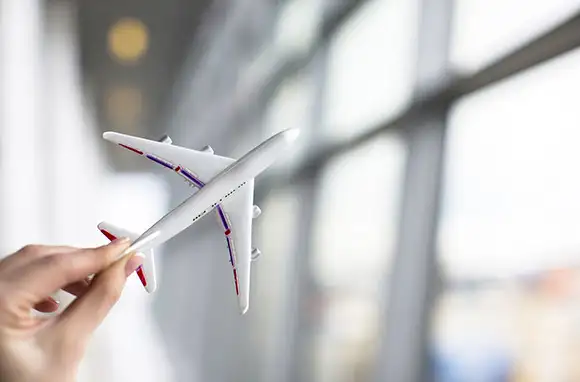
Not Knowing Passenger Rights
If something goes wrong on your trip, make sure your airline lives up to its end of the deal. Generally, if your flight is canceled or delayed by more than a few hours, you have a right to cancel the trip with a full refund, even on a nonrefundable ticket.
If another airline can get you to your destination earlier than your original airline, you can ask the original carrier to switch you—but all you can do is ask; you can't demand it. And most airlines agree to provide meal expenses in the event of long delays and hotel accommodations for overnight delays.
Solution: The specifics are in each airline's contract of carriage and customer-commitment statements, which, by regulation, must be available to you at a ticket counter. Better yet, read over your rights before each trip. Check out our primer on air-passenger rights.

Assuming Everything Will Happen as Planned
Plan for the worst, especially when traveling during winter. In the event that the weather throws a wrench in your plans, you need to be ready for it. A serious delay or cancellation will inconvenience you and likely cost you money, especially if you decide that your airline's solution isn't good enough to meet your needs.
Solution: Have a Plan B. Don't schedule your trip so tightly that a delay would cause you to miss something important. Don't make a nonrefundable hotel reservation for your first night of arrival, unless it's such a good deal that you can afford to lose your payment if you can't make it. And if you're heading from a problem-weather area to catch a cruise, consider using the cruise line's air arrangements. That way, if your arrival at the port is delayed, the cruise line will have to fix the problem; if you make your own air arrangements, you're on your own if something goes wrong.

Ignoring the Weather
Don't let winter weather catch you off guard. Whether you're flying, driving, or taking Amtrak, keep a close eye on weather conditions at your home, destination, and any key intermediate points.
Solution: Keep checking weather forecasts and, if driving, your state's highway-conditions hotline or website.
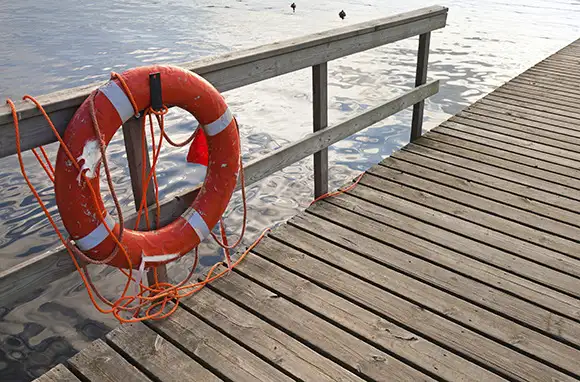
Foregoing Travel Insurance
We usually recommend travel insurance for travelers planning big-ticket trips that cost a lot of money. If you can't afford to walk away from the money you've invested in your trip if something were to happen to prevent you from taking the vacation, think about buying insurance, no matter the season.
Solution: During winter, consider a travel insurance policy that provides extra cancellation and delay benefits in case of inclement weather. It won't get you where you're going any earlier, but it can ease financial burdens.

Losing Your Cool
In a bad-weather snarl, airline employees are probably as stressed as you are. No matter what happens, you'll have to deal with other humans, and you'll get better results by remaining calm and being nice than by shouting and threatening. Even exalted frequent-flyer status can't open a closed runway.
Solution: Look at cat pictures on the Internet. Breathe. Load up your phone with relaxing, calming music. Find a stress-relief tool that works for you, and plan to bring it with you on the road.
You Might Also Like:
We hand-pick everything we recommend and select items through testing and reviews. Some products are sent to us free of charge with no incentive to offer a favorable review. We offer our unbiased opinions and do not accept compensation to review products. All items are in stock and prices are accurate at the time of publication. If you buy something through our links, we may earn a commission.
Related
Top Fares From
Today's Top Travel Deals
Brought to you by ShermansTravel
Shop and Save with Country Inns...
Patricia Magaña
 Hotel & Lodging Deals
Hotel & Lodging Deals
$229 -- Chicago: Discounted Rates and...
Francesca Miele
 Hotel & Lodging Deals
$229+
Hotel & Lodging Deals
$229+
$188 -- Honolulu: Save on Oceanview...
Abigail Lamay
 Hotel & Lodging Deals
$188+
Hotel & Lodging Deals
$188+
